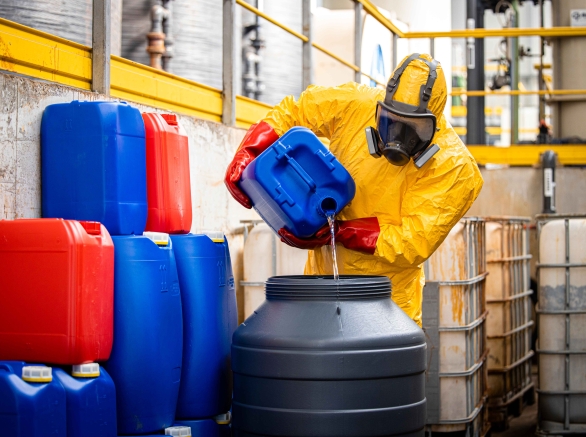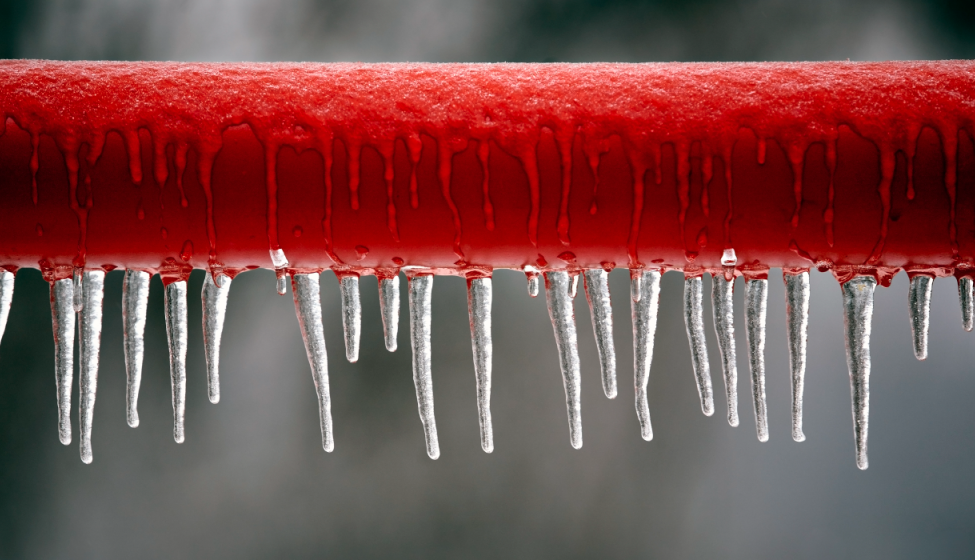March 1, 2021
Exponent's fire protection engineers assist in sprinkler system failure analysis
Recent winter storms Uri and Viola brought multiple days of sustained below-freezing temperatures to large swaths of the southern United States that rarely see such cold conditions, including parts of Texas, Oklahoma, and Louisiana. In the aftermath of these storms, as temperatures began to rise and power and heat were restored, these areas have seen a large spike in incidents where fire sprinkler systems froze, burst, and then thawed, flooding homes and businesses and resulting in damages and insurance claims. These types of loss claims are expected to continue to rise over the next few weeks as the cleanup continues.
Because sprinkler systems are designed with robust water supplies and pumps, the release of water when sprinkler system pipes fracture can cause extensive damage that is often costly to remediate. If left to flow, these systems can release hundreds to thousands of gallons of water in a matter of minutes. Water flow from a frozen sprinkler system in the attic of a large residential building, for example, can lead to costly damage to all the floors below, destruction of property, and loss of use for tenants.
Fire sprinkler systems are often installed in places that are susceptible to cold temperatures, including attics, parking garages, and balconies. In these locations, sprinkler systems are either insulated to protect them from freezing or kept dry (i.e., dry/deluge sprinkler systems) to prevent freezing water all together. Systems that are not installed or subsequently maintained according to national standards and codes such as from the National Fire Protection Association (i.e., NFPA 13, 13R, 13D, 25) and the International Code Council (i.e., IBC, IRC, IFC) are susceptible to freezing during cold temperatures including those experienced during the recent winter storms.
Resulting failures claims often involve a combination of factors such as the weather, sprinkler system installation, pipe pitch (i.e., its ability to drain properly), sprinkler system maintenance, fire alarm system installation and maintenance, building and pipe insulation, heating ventilation and air conditioning (HVAC), water supply, and actions by building staff, all of which can be addressed by an engineer during an investigation.
How Exponent Can Help
Exponent's team of fire protection engineers is uniquely suited to address sprinkler system freeze claims. Exponent's team uses the latest tools and technology, leveraging years of experience designing and inspecting sprinkler systems, to determine the root cause of these failures, including the initiating events, contributing factors, and liability. Exponent's engineers are deployed rapidly anywhere in the United States to investigate a claim, often before any remediation efforts so that all necessary evidence is documented and collected. Our team also assists with the defense of sprinkler system installers and inspection companies for incidents when sprinkler system freeze events are found to be caused by a lack of maintenance by the building owner/staff. Exponent can also conduct a facility audit to assess whether sprinkler systems were installed in accordance with national standards and codes to avoid future sprinkler system freeze events.
Insight


